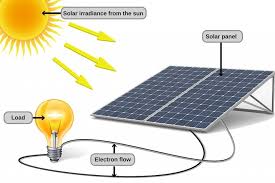Energy development in Indonesia is faced with a major problem in the form of a gap between potential energy sources (primary energy) and consumption of various types of energy. For example, the ratio between the level of production and the potential of petroleum reserves is very large, while the ratio of geothermal utilization is longer because of its nature as renewable energy.
Therefore according to Deputy Technology Technology Policy Assessment (PKT) BPPT Gatot Dwianto, Indonesia as a tropical country, needs to utilize solar energy which is currently being developed by various parties. Like being converted into electricity.
"The use of solar energy using solar photovoltaic (PV) technology or solar cells is expected to be an option to replace primary energy sources to be converted into electricity," Gatot said through a written message on Thursday (6/9).
He said, in fact the Indonesian government through various policies had encouraged the growth of manufacturing solar power generation components in the country. For example through the application of domestic content levels (TKDN) for the procurement of solar power devices carried out by government agencies and state-owned enterprises to encourage the growth of the solar power plant component industry (PLTS) in the country.
Meanwhile, the Director of BPPT Telematics and Electronics Manufacturing Industry Center (PPIMTE) Andhika Prastawa revealed that energy utilization by household, industrial and transportation consumers is far from efficient. This is reflected in the behavior of selecting types of energy for various sectors that have not been effective and more consumptive energy consumption and low levels of equipment efficiency.
According to German Federal Government's predictions regarding the world's primary energy sources until 2100, he explained, starting from 2030 the primary energy sources used to meet the world's needs (oil, coal and natural gas) will experience a drastic decline and will be replaced with renewable energy sources. especially solar energy.
"The roadmap is expected to be a reference for developing policies for the development of PLTS component manufacturing industries in Indonesia. In addition to being an alternative environmentally friendly energy source, and replacing primary energy sources for conversion into electricity," he said.
That way, optimizing the use of solar power can be a solution to meet electricity needs in the future, on the other hand manufacturing solar power generation devices can create new jobs and double effects on the economy.
Therefore according to Deputy Technology Technology Policy Assessment (PKT) BPPT Gatot Dwianto, Indonesia as a tropical country, needs to utilize solar energy which is currently being developed by various parties. Like being converted into electricity.
"The use of solar energy using solar photovoltaic (PV) technology or solar cells is expected to be an option to replace primary energy sources to be converted into electricity," Gatot said through a written message on Thursday (6/9).
He said, in fact the Indonesian government through various policies had encouraged the growth of manufacturing solar power generation components in the country. For example through the application of domestic content levels (TKDN) for the procurement of solar power devices carried out by government agencies and state-owned enterprises to encourage the growth of the solar power plant component industry (PLTS) in the country.
Meanwhile, the Director of BPPT Telematics and Electronics Manufacturing Industry Center (PPIMTE) Andhika Prastawa revealed that energy utilization by household, industrial and transportation consumers is far from efficient. This is reflected in the behavior of selecting types of energy for various sectors that have not been effective and more consumptive energy consumption and low levels of equipment efficiency.
According to German Federal Government's predictions regarding the world's primary energy sources until 2100, he explained, starting from 2030 the primary energy sources used to meet the world's needs (oil, coal and natural gas) will experience a drastic decline and will be replaced with renewable energy sources. especially solar energy.
"The roadmap is expected to be a reference for developing policies for the development of PLTS component manufacturing industries in Indonesia. In addition to being an alternative environmentally friendly energy source, and replacing primary energy sources for conversion into electricity," he said.
That way, optimizing the use of solar power can be a solution to meet electricity needs in the future, on the other hand manufacturing solar power generation devices can create new jobs and double effects on the economy.

No comments:
Post a Comment